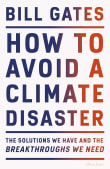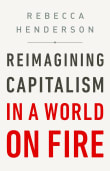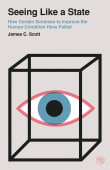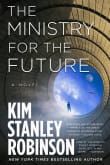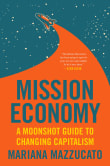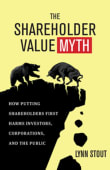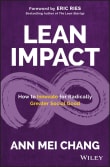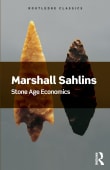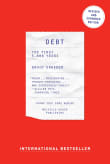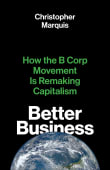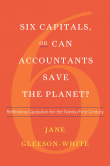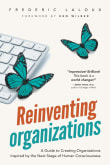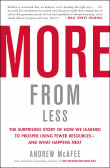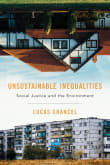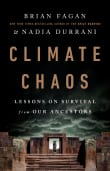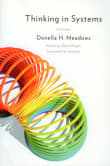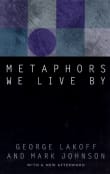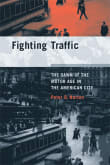Doughnut Economics
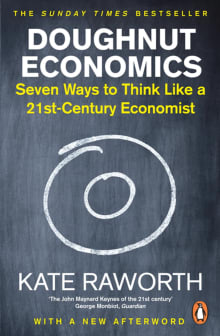
Book description
A Financial Times "Best Book of 2017: Economics"
800-CEO-Read "Best Business Book of 2017: Current Events & Public Affairs"
Economics is the mother tongue of public policy. It dominates our decision-making for the future, guides multi-billion-dollar investments, and shapes our responses to climate change, inequality, and other environmental and social…
Why read it?
7 authors picked Doughnut Economics as one of their favorite books. Why do they recommend it?

Kate Rayworth speaks our language. This book explains how to develop an economy that takes human and planetary flourishing into account and, most importantly, explains how we might think differently to get there.
This is a 300-plus-page book about economics—to be honest, even we haven't finished it cover to cover—but we feel a little bit wiser and more hopeful every time we crack it open!
From Carissa and Scott's list on help you design a better future.

For me, this book offered a perfect link between understanding the fundamental thinking in the field of economics and the necessity of changing that. Western society and lifestyles are all based on the notions of economic growth, extraction of resources, and externalizing the costs to other places and generations. And we are so used to this underlying worldview that we tend to take all of this for granted.
I think that the big crises we are facing are rooted here. By revealing this, we can see the fence that is limiting our thinking. With the alternative logic of the Doughnut…
From Marco's list on how your language shapes the way you think (and act).

Okay, consider the economics of planet earth as a ring doughnut.
The outer surface of this doughnut is our planetary boundaries, which we mustn't breach because if we do, our living world goes straight to hell (we are close!). The inner surface is human social foundation; the needs of all the humans, and all the systems of the living world that we depend on, being met.
Doughnut economics is when economic entities of all persuasions (governments, neoliberal billionaires, minor TikToc entrepreneurs; you and me) work with this model, and no other, in mind. Tricky, very tricky...
I had no idea…
If you love Doughnut Economics...

If you ask me, there is very little I agree with in this book, and in particular the idea that economic growth is irrelevant once you focus on the things that actually matter in life (access to water, education, housing, health, and so on) while respecting planetary boundaries.
Let alone the fact that a stylized chart of a doughnut is hardly going to change millennial economic and power dynamics. Nonetheless, Raworth wrote an extremely readable and erudite book, and crucially fostering reflection on the one issue that to my mind is central: how to turn economic growth into a force…
From Alessio's list on the relationship between the economy and nature.

I have been a raving fan of Kate Raworth and Doughnut Economics ever since I heard her speak about Doughnut Economics at a B-Corp conference in Amsterdam.
Ultimately, a sustainable economic system requires an upgrade of its current operating system which operates on the principles of neoliberal, free-market economic theory. Kate Raworth provides a brilliant alternative to neoliberal, free-market economic theory in Doughnut Economics.
I love Chapter Two which provides one of the best synopses of the foundational principles of neoliberal economics and suggests alternative principles – Doughnut Economics - that will allow humanity to live within the planetary…
From John's list on creating a sustainable economy for our children.

This one is a bit different. The others give a foundation for thinking differently about the economy and the quality of life, and Raworth actually does it in this book from 2017. The doughnut is deceptively simple, limited by planetary boundaries externally and human needs internally, and the challenge consists in not falling off. Raworth has stimulated our intellectual and political imagination, showing that a different world is possible in practice and not just in the world of slogans. Business leaders and radical activists alike are inspired by her thinking, and that is no mean feat in today's divided world.
From Thomas' list on economic anthropology.
If you love Kate Raworth...

To succeed in facing the social and environmental challenges that threaten to upend our economies, we need to refocus from financial and economic measures such as total returns to shareholders and GDP growth. The question has always been what measures would we substitute in? Raworth’s concept of the “Doughnut” is one of the most coherent articulations of the answer to this question: imagine a doughnut where the inside foundation are the social needs of water, food, health, energy, housing, gender equality, education, peace and justice, income and work and so on. Failure to meet these needs leads to shortfalls. On…
From Sarah's list on stakeholder capitalism.
Want books like Doughnut Economics?
Our community of 12,000+ authors has personally recommended 100 books like Doughnut Economics.


